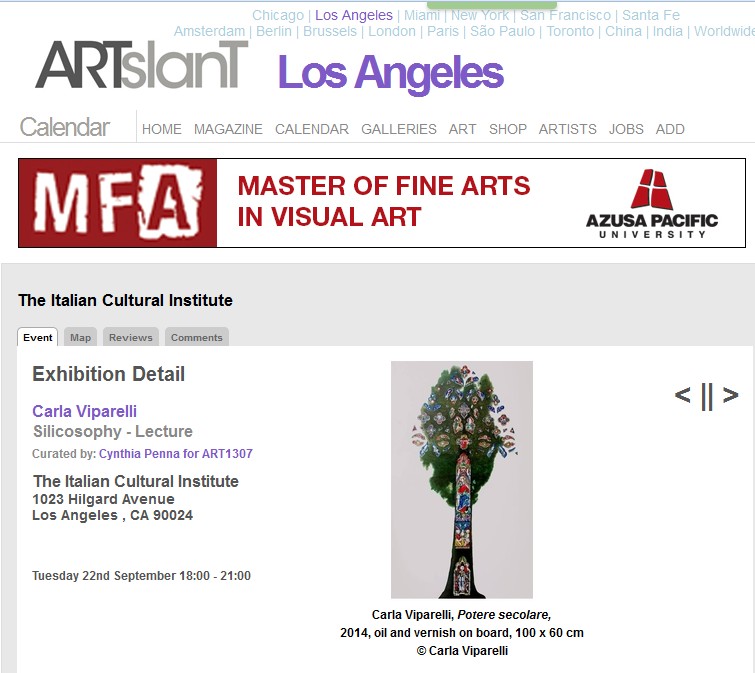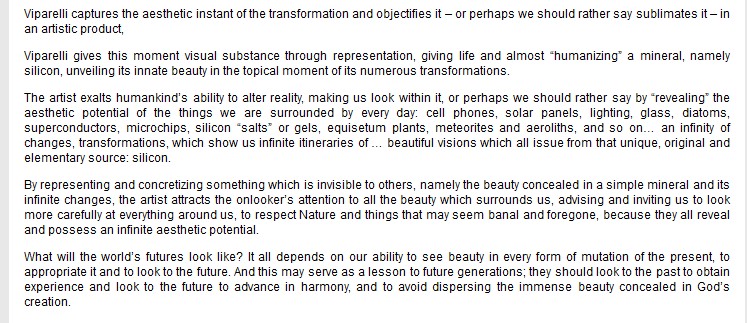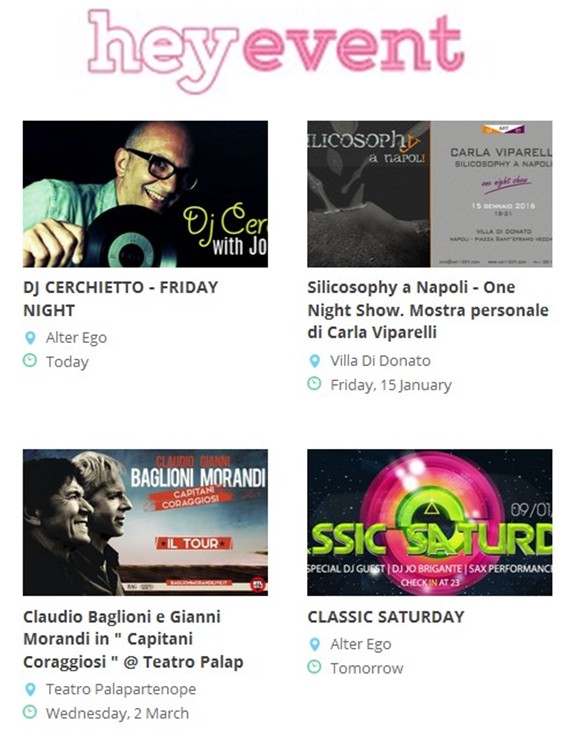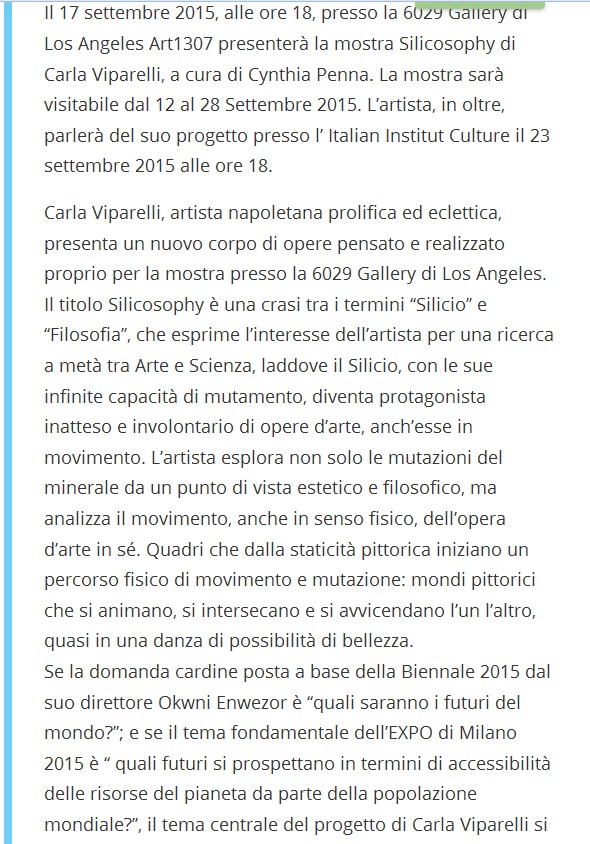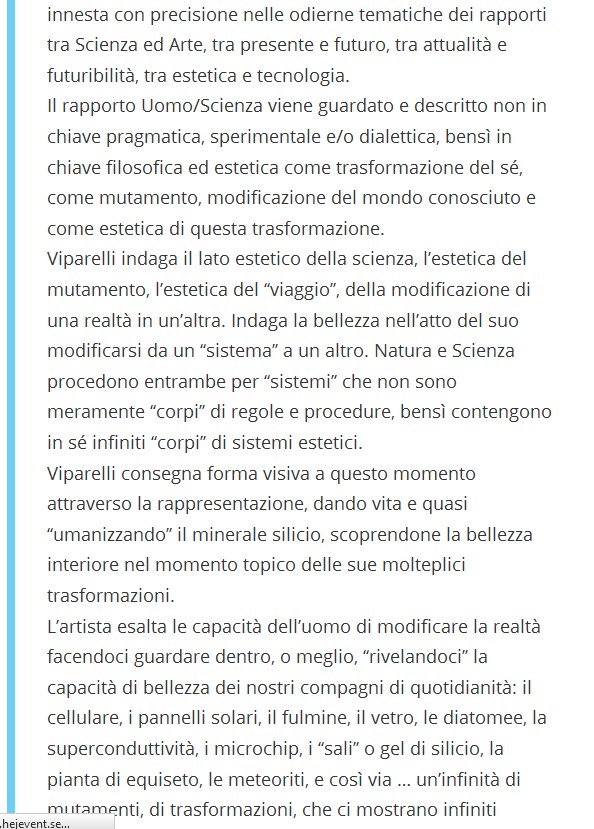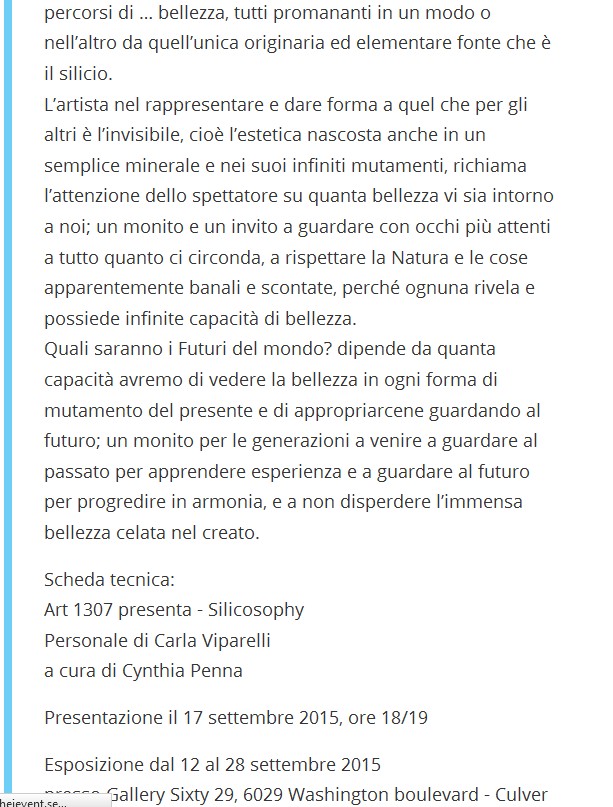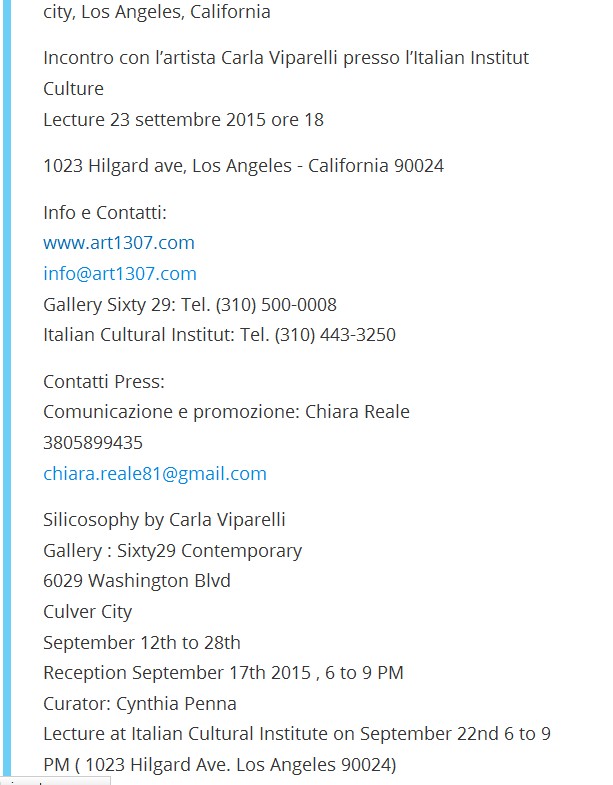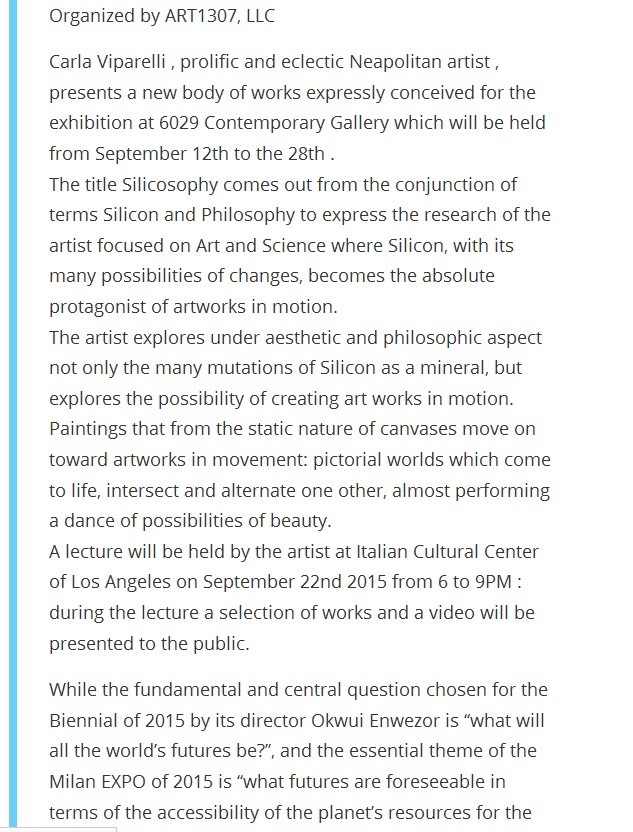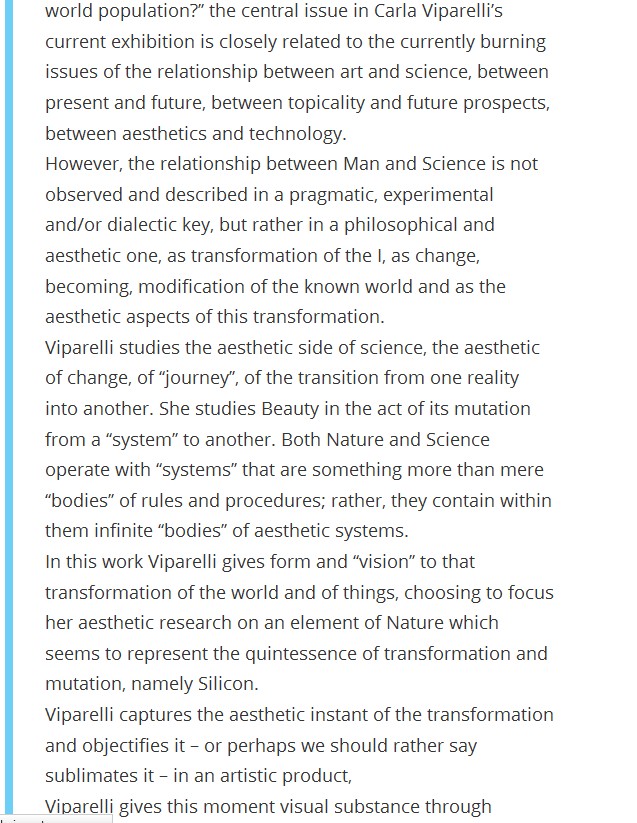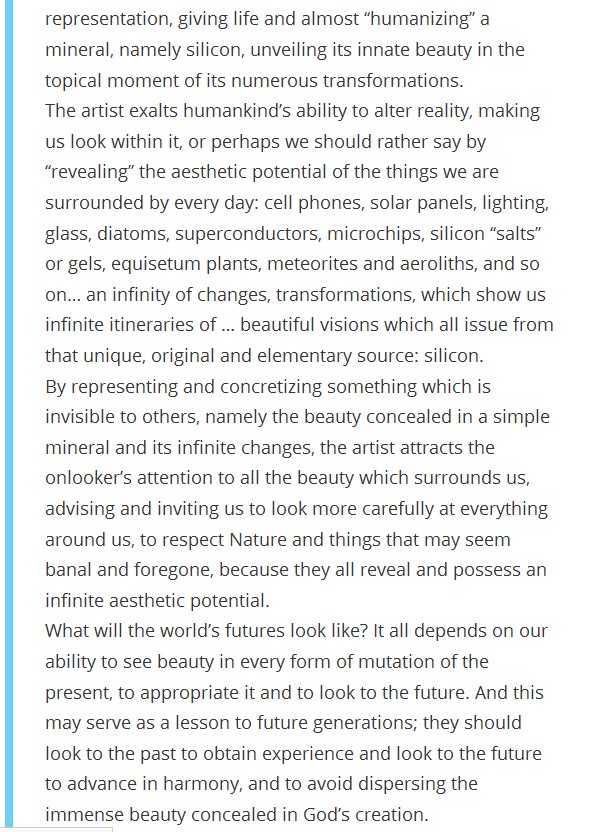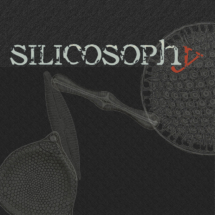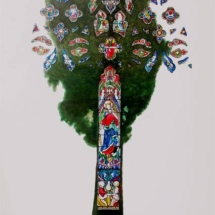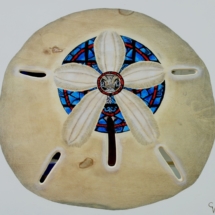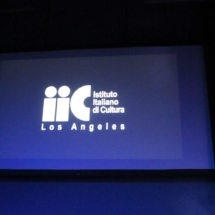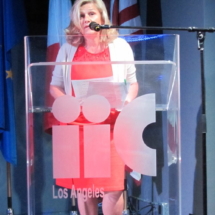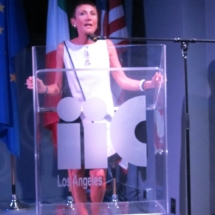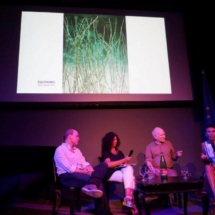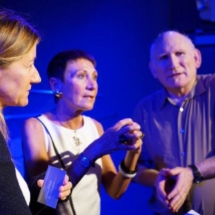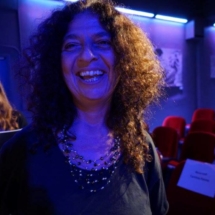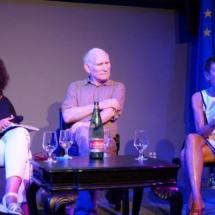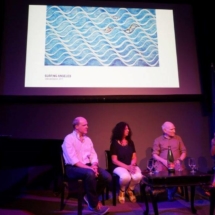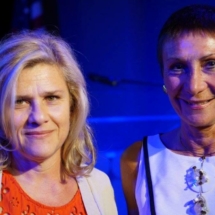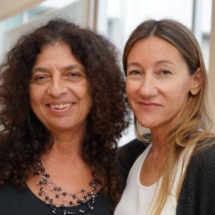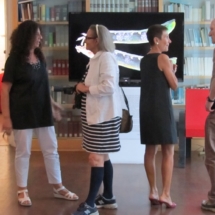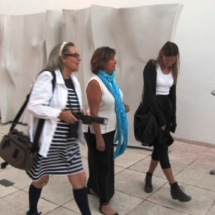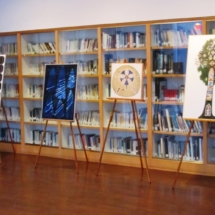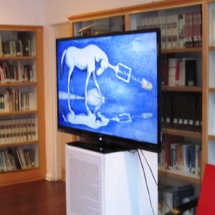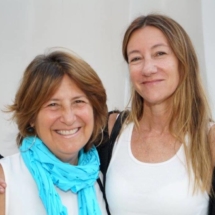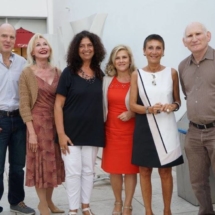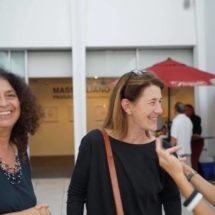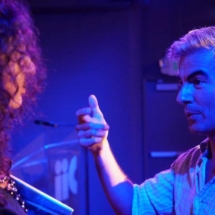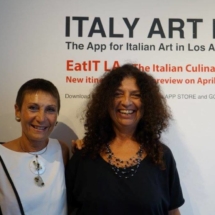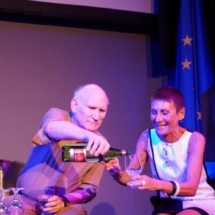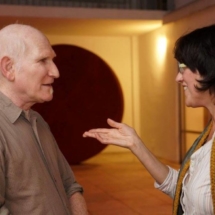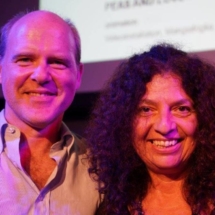Silicosophy @ IIC Los Angeles
Lecture
Istituto Italiano di cultura, 1023 Hilgard Avenue – Los Angeles 90024 CA
On 23/09/2015
Curator: Cynthia Penna for ART1307
Press: ART1307
PRESS RELEASE
Carla Viparelli , prolific and eclectic Neapolitan artist , presents a new body of works expressly conceived for the exhibition at 6029 Contemporary Gallery which will be held from September 12th to the 28th .
The title Silicosophy comes out from the conjunction of terms Silicon and Philosophy to express the research of the artist focused on Art and Science where Silicon, with its many possibilities of changes, becomes the absolute protagonist of artworks in motion.
The artist explores under aesthetic and philosophic aspect not only the many mutations of Silicon as a mineral, but explores the possibility of creating art works in motion. Paintings that from the static nature of canvases move on toward artworks in movement: pictorial worlds which come to life, intersect and alternate one other, almost performing a dance of possibilities of beauty.
A lecture will be held by the artist at Italian Cultural Center of Los Angeles on September 23nd 2015 from 6 to 9PM : during the lecture a selection of works and a video will be presented to the public.
While the fundamental and central question chosen for the Biennial of 2015 by its director Okwui Enwezor is “what will all the world’s futures be?”, and the essential theme of the Milan EXPO of 2015 is “what futures are foreseeable in terms of the accessibility of the planet’s resources for the world population?” the central issue in Carla Viparelli’s current exhibition is closely related to the currently burning issues of the relationship between art and science, between present and future, between topicality and future prospects, between aesthetics and technology.
However, the relationship between Man and Science is not observed and described in a pragmatic, experimental and/or dialectic key, but rather in a philosophical and aesthetic one, as transformation of the I, as change, becoming, modification of the known world and as the aesthetic aspects of this transformation.
Viparelli studies the aesthetic side of science, the aesthetic of change, of “journey”, of the transition from one reality into another. She studies Beauty in the act of its mutation from a “system” to another. Both Nature and Science operate with “systems” that are something more than mere “bodies” of rules and procedures; rather, they contain within them infinite “bodies” of aesthetic systems.
In this work Viparelli gives form and “vision” to that transformation of the world and of things, choosing to focus her aesthetic research on an element of Nature which seems to represent the quintessence of transformation and mutation, namely Silicon.
Viparelli captures the aesthetic instant of the transformation and objectifies it – or perhaps we should rather say sublimates it – in an artistic product,
Viparelli gives this moment visual substance through representation, giving life and almost “humanizing” a mineral, namely silicon, unveiling its innate beauty in the topical moment of its numerous transformations.
The artist exalts humankind’s ability to alter reality, making us look within it, or perhaps we should rather say by “revealing” the aesthetic potential of the things we are surrounded by every day: cell phones, solar panels, lighting, glass, diatoms, superconductors, microchips, silicon “salts” or gels, equisetum plants, meteorites and aeroliths, and so on… an infinity of changes, transformations, which show us infinite itineraries of … beautiful visions which all issue from that unique, original and elementary source: silicon.
By representing and concretizing something which is invisible to others, namely the beauty concealed in a simple mineral and its infinite changes, the artist attracts the onlooker’s attention to all the beauty which surrounds us, advising and inviting us to look more carefully at everything around us, to respect Nature and things that may seem banal and foregone, because they all reveal and possess an infinite aesthetic potential.
What will the world’s futures look like? It all depends on our ability to see beauty in every form of mutation of the present, to appropriate it and to look to the future. And this may serve as a lesson to future generations; they should look to the past to obtain experience and look to the future to advance in harmony, and to avoid dispersing the immense beauty concealed in God’s creation.
Press room
